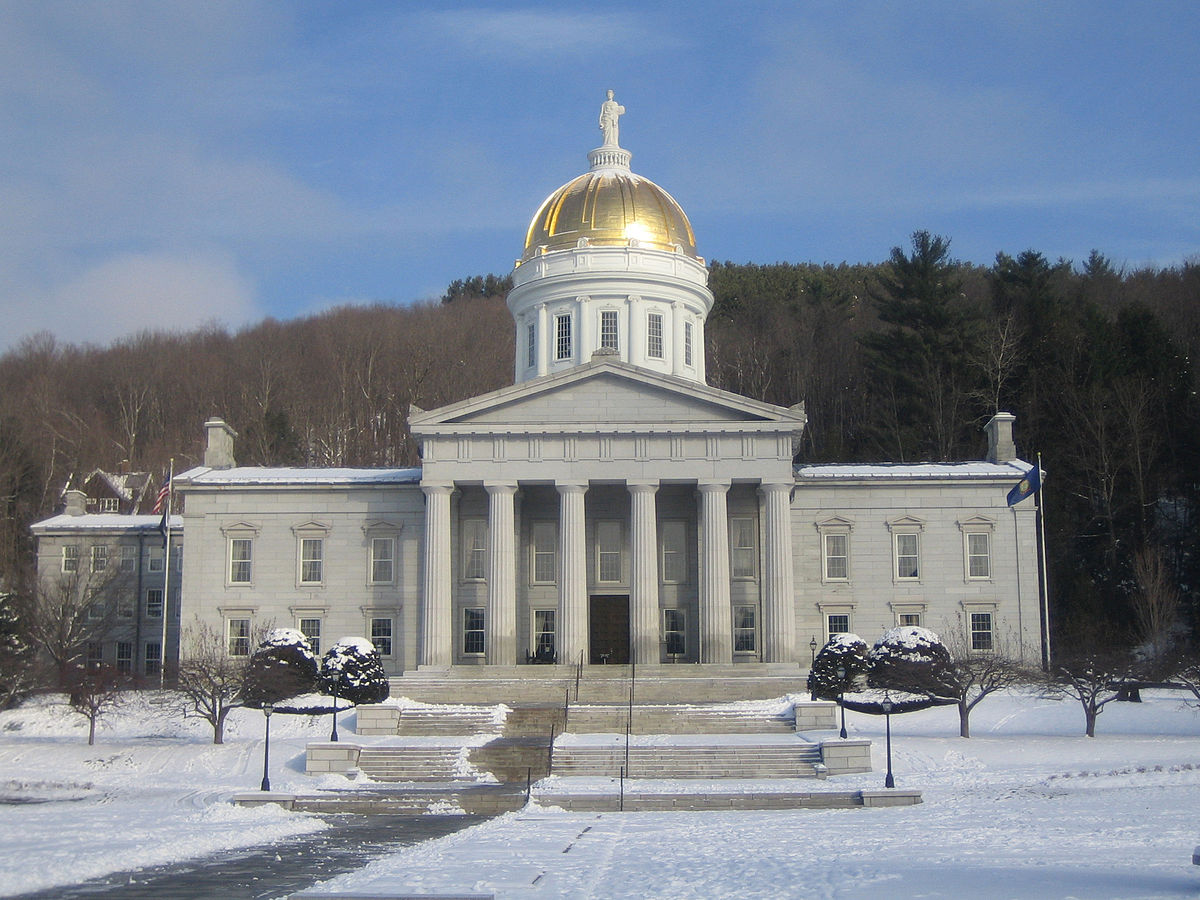LEGISLATIVE UPDATE January 27, 2020
WEEK 3: INCLUDED IN THIS UPDATE
- Governor’s Budget
- Act 250
- Milk Bonding
- Senate Agriculture Committee
- Paid Family Leave
- Minimum Wage
GOVERNOR’S BUDGET OVERVIEW
- Supports FY2021 General Fund total appropriations of $1.702 billion.
- Funds a suite of economic development initiatives, including investment incentives, a convertible loan program and grants to rural entrepreneurs.
- Invests in cutting-edge technology in battery and energy storage while continuing our commitment to put more electric vehicles on the road.
- Bolsters our investment in early care and learning and launches new initiatives to help young families and those suffering from mental illness.
- Focuses on building our workforce by providing relocation assistance, lower taxes for military retirees and incentives to invest in rental housing.
- Continues our investment in a cradle-to-career education system to improve skills and job readiness across the age spectrum.
Workforce Expansion
- $1 million in tax incentives to those who graduate from Vermont state colleges and universities with a nursing degree
- $100,000 to the Department of Labor to increase investment in the Vermont Youth Employment Program.
- $100,000 to the Department of Labor to work with state and community partners to grow the State’s workforce by recruiting and retaining New Americans.
- $50,000 to support the development of community-based systems for settling New Americans in partnership with the State Refugee Resettlement Office.
Education
- $3 million to the Child Care Financial Assistance Program to boost subsidies for early care and learning. Revenue will come, in part, from increased lottery sales due to the introduction of Keno.
- An additional $500,000 to VSAC for Advancement Grants to assist adult learners with their education and training. These grants provide up to $2,500 for non-degree technical education.
- An additional $500,000 to Vermont State Colleges for academic support and retention.
- An additional $1.4 million to UVM to replace the loss of Medicaid funding and help maintain tuition support for Vermont students.
Rural Economy
- An additional $750,000 for the Working Lands Enterprise Initiative to help Vermont’s rural entrepreneurs grow and develop their businesses.
- $300,000 to Regional Planning Commissions and $50,000 for municipal planning grants to reduce municipal zoning barriers constraining housing opportunities.
- $1.4 million to expand the downtown and village center tax credit program, focusing on rental housing stock and rehabilitation of older and historic buildings in downtowns and village centers.
- $1 million to the Vermont Housing Incentive Program (VHIP), a rental housing rehabilitation program that uses small grants to incentivize small private apartment owners to make significant improvements to both housing quality and weatherization
Making Vermont More Affordable
- Commit 25% of all future end-of-year budget surpluses to additional investments that combat climate change. Focus on initiatives that support weatherization and electrification.
- $2 million in capital and technical assistance for grid optimization companies. Encourage climate economy businesses and start-ups to make Vermont a leader in this sector.
- $250,000 to implement a pilot, in cooperation with a distribution utility, that explores the use of grid optimization technologies to lower energy costs and combat climate change.
- $500,000 towards a refundable tax credit to promote research and development into clean energy.
- $400,000 to fund the elimination of corporate income taxes for clean grid optimization companies.
- $3 million for programs and incentives to foster electric vehicle adoption throughout the State.
- $1.4 million for the first year of the two-year phase-in to exempt military pension income from state income tax.
- $500,000 to reform the renter rebate program. The current application process is inefficient and difficult to navigate.
ACT 250
The House Natural Resources Committee continues to take testimony on ACT 250. As indicated last week there was a new joint proposal from the Administration and VNRC. This proposal recommends major changes to certain parts of the ACT 250 process but not all, the items below were not included in the joint proposal:
- Reorganization of Criteria 1, 2, 3- separating air & water
- Sub criteria 1(A)&(B)- adding air contaminants and GHG emissions
- Definition of “commercial purpose”
- Development Cabinet
- Increase in per diem rate
- Slate quarries and preexisting pits & quarries
- Releasing property from Act 250 jurisdiction
- Environmental justice and racial equity
This week the House Natural Resources committee will start to include language from the joint proposal, that is agreed upon, into a new draft of the bill.
MILK BONDING
S-209 An act relating to the bonding requirements for milk handlers
This bill proposes to require the Secretary of Agriculture, Food and Markets to report to the General Assembly regarding the sufficiency of the bonding requirements for milk handlers purchasing milk in the State
Leon Berthiaume from DFA (formerly from St. Albans Cooperative) testified before the Senate Ag on Thursday regarding the milk bonding issue. After a discussion of the significant changes and challenges in the dairy industry it was decided that the report, required by March 1, 2020, would be due on January 15, 2021. There was also some discussion around having the Vermont Milk Commission review this issue.
SENATE AGRICULTURE COMMITTEE
The Senate Ag Committee will hear from legislative council, Mike O’Grady, on Wednesday regarding the Agency of Agriculture’s strategic plan at 9:00 and then at 10:00 the committee will be going over S-37, Medical Monitoring, as it pertains to agriculture. Both of these issues could have a significant impact, positive and or negative. I will report next week on the outcome of these discussions.
PAID FAMILY LEAVE
H-107 An act relating to paid family and medical leave
This bill proposes to create a Paid Family Leave Insurance Program within the Departments of Labor and Taxes that will be funded by contributions from employers and employees. The bill also proposes to amend Vermont’s existing Parental and Family Leave Act to make it applicable to additional employers and to clarify certain provisions.
The proposal would:
- impose a .2% payroll tax on all employees. Employers are not required to pay but can elect to pay employees’ contribution. Employees that make more than $7,400 per year will be eligible to take leave.
- allow employees to take up to 12 weeks of paid maternity/paternity/bonding leave for a newborn child. A couple can split up to 24 weeks. (Senate version wanted to allow for couples to split 16 weeks)
- provide wage replacement in a tiered format: low-income earners would earn up to 90% wage replacement, while higher income earners will see a lower percentage wage replacement.
The Paid Family Leave bill passed the House Thursday on a vote of 89 in favor to 58 against. It will now go the Governor. The Governor has five days, from receiving the bill, to either support or veto, there is indication that he will veto the bill. If he does veto, the House needs 100 votes to override the veto. At this point there is uncertainty that the House could come up with the 100 voted to override.
FROM THE RETAIL AND GROCERS ASSOCIATION/ERIN SIGRIST
House Increases Minimum Wage to $12.55 by 2022
On a vote of 93-52, the House on Friday passed the Committee of Conference compromise to S.23 which would increase the minimum wage to $12.55 by 2022. Committee members touted this as a positive compromise to $15 and have made it clear that additional proposals will be forthcoming in 2021. The Joint Fiscal Committee estimates that the increase would cost businesses and the State of Vermont $53 million in 2021 and $121 million in payroll increases in 2022.
The bill does not include a student/training wage that would allow employers the ability to start new employees with limited experience out at a lower rate for a certain period.
Debate on the House Floor vacillated between “affordability for Vermonters” and “affordability for small businesses” in rural communities. The Democratic party was split on moving the bill forward; some expressed concern surrounding the impact to rural communities while other expressed frustration that the bill wasn’t going far enough.
The Senate will vote next week on the compromise and send it to the Governor for consideration.
BILLS OF INTEREST
As of 1/26/2020
H-830 An act relating to the use of food residuals for farming
H-832 An act relating to the use and management of pesticides
H-852 An act relating to signal lamp permits for farm tractors and farm trucks
H-853 An act relating to discontinued highways, legal trails, and impassable or untraveled highways
S-321 An act relating to miscellaneous fish and wildlife issues
As of 1/19/2020
H-557 An act relating to municipal regulation of livestock running at large
H-562 An act relating to the definition of agricultural land for the purposes of use value appraisals
H-575 An act relating to bears doing damage to agricultural crops
H-581 An act relating to the funding of the Department of Fish and Wildlife
H-584 An act relating to disclosure of cyanobacteria outbreak prior to conveyance of real property
H-616 An act relating to the professional regulation of land surveyors
H-628 An act relating to Cross Vermont Trail directional signs
H-633 An act relating to development and subdivisions above 1,500 feet
H-673 An act relating to tree wardens
H-674 An act relating to clarifying the definition of development used for use value appraisals
H-688 An act relating to addressing climate change
H-759 An act relating to the use of neonicotinoid-treated article seed
H-766 An act relating to the regulation of cannabis
H-794 An act relating to limiting liability for agritourism
H-798 An act relating to the use of biochar
H-828 An act relating to Vermont standards for issuing a Clean Water Act section 401 certification
H-829 An act relating to the use of the pesticide chlorpyrifos
S-200 An act relating to the definition of house-site for use value appraisals
S-280 An act relating to forest carbon sequestration programs
S-310 An act relating to use value appraisals
S-315 An act relating to administration and enforcement of agricultural water quality violations
To learn more about any of the bills listed above, visit the Vermont Legislative website at https://legislature.vermont.gov/ and use the very convenient search tool available. If you wish us to keep a keen eye on any of the above bills, please let us know by sending an email to info@vermontwoodlands.org.



